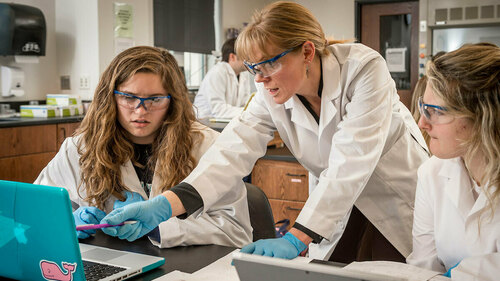
Nancy Michael, associate teaching professor of neuroscience and behavior at the University of Notre Dame, earned a Next Generation Award from the Society for Neuroscience for her community-based learning programs and course for undergraduates that matches students with community partners that serve a vulnerable local population.
Michael, who is also the director of undergraduate studies for neuroscience and behavior, won the Next Generation outreach award for junior faculty.
“This award is meaningful, and I think about it not in the context of recognition, but in terms of the impact of the work I have done. The way I approach education and research is to think about how we might give opportunities for more stable communities,” she said. “I do the things I do because I want to be the best teacher and the best mentor, and leave the world in a little bit of a better place.”
She has developed neuroscience-based materials to meet the needs of undergraduate students, school districts and community organizations. In the developmental neuroscience course she designed and teaches, students are matched with a community partner serving a vulnerable local population, including Hannah’s House, the Robinson Community Learning Center and the South Bend Center for the Homeless.
In addition to her use of community-based learning with Notre Dame undergraduates, Michael has engaged with local schools in topics related to brain health. She has also taught juvenile detention officers and staff about how adverse childhood experiences and stress affect the developing brain.
Two others won the Next Generation awards for pre- and postdoctoral students and a professor at Duquesne University earned the organization’s Science Educator Award.
“The society is honored to recognize this year’s winners, whose efforts to inspire students of all ages, as well as adults and the general public, reflect a passion and enthusiasm for STEM outreach and health literacy,” Society for Neuroscience president Barry Everitt said. “In addition to conducting their own research in neuroscience, they have found creative ways to reach out to the larger community, and especially underserved populations, to instill an appreciation for brain science and health.”
Originally published by at science.nd.edu on Oct. 29.